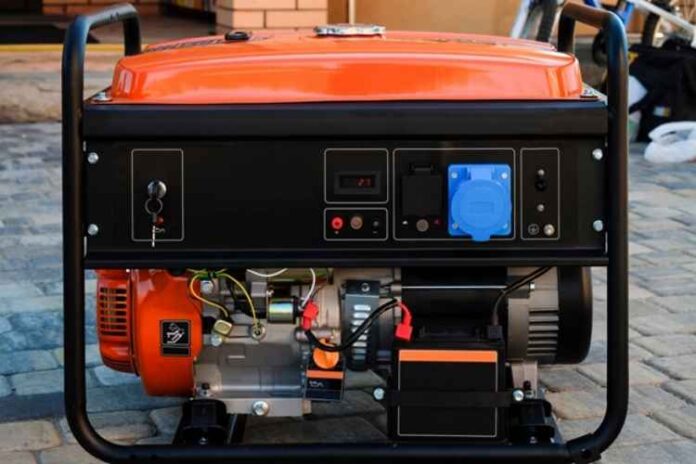Are you on the hunt for a portable generator? As you’ve noticed, extreme weather has been more prevalent in the past couple of years. The problem with our aging power grid system is they can quickly go down during these catastrophes and leave you without power.
This is why investing in a portable generator gives you an advantage during an emergency. Portable generators aren’t just for emergencies, and they’re also great for camping, residential use, or businesses requiring power around the clock.
If you’re on the search for a portable generator and want to know which one is best for you, keep reading. This article will explain the best portable generator that’s right for you.
What is a Portable Generator?
A portable generator is a diesel, gas, or solar-powered machine that provides electricity if the power goes out or if you need it in a remote location.
Portable generators have onboard inverters which allow you to plug in 20amp, 30 amp, or even 50 amp appliances. Portable generators can provide anywhere from 500 watts to 10,000 watts of continuous power.
Types Of Portable Generators
Portable generators can give you a lot of versatility and flexibility based on their design. These Different designs can cater to your needs, depending on your circumstances. Lets’ Take a look at the different types of portable generators on the market.
Diesel Powered Generators
Diesel generators, as their name states, are run by diesel fuel. Diesel-powered generators run a lot more efficiently than gas-powered generators and handle a larger power output of up to 15,000 watts.
Diesel fuel has a low burning temperature, which means it puts less strain on the engine, making these units last longer with routine maintenance. They also run well in freezing temperatures as long as you use winter diesel fuel mix.
Regular diesel fuel will gel in sub-freezing temperatures, which will prevent the engine from starting, so make sure you have some on hand if you live in a colder climate.
Diesel-powered generators are best for those looking for a durable, long-lasting unit. If you need a whole-house backup or looking for high output power for industrial use or to power an RV, diesel is a good generator setup option.
Gas Powered Generators
Gas-powered generators are the most common generators you’ll see on the market. Gasoline is one of the cheaper options for fueling a generator, and production costs are low, saving money for the consumer.
Gas-powered generators are easy to use and common on the market. They are suitable for midrange power needs around 500 to 5000 watts output. Gas Generators can power a few vital appliances such as lights, refrigerator, deep freeze, and a few accessories such as phone charges a tv. They’re also great for camping, and some are super quiet when running.
If you’re looking for a portable power source that doesn’t need a lot of top-end power, gasoline is a viable option when hooking up portable generators for use.
Solar Powered Generators
For a long time, to produce sustainable energy to keep the lights on in case of a power outage, you need a generator that runs off of gasoline or diesel.
The problem with fuel-driven generators is that they’re very loud when operating and emit harmful gasses. Solar generators create power using solar panels, and which they convert that energy into electrical power. This power is then stored in a battery bank which can be used to power your equipment or appliances.
A solar power generator’s pros are that it is lightweight, doesn’t emit harmful gasses, operates silently, has low-maintenance costs, and can last up to 35 years.
The cons are that they have a high initial upfront cost, recharge very slowly, and provide a limited power supply. Solar-powered generators are suitable for those who need to run equipment with no noise and use small amounts of power, like camping or running one or two appliances during a power outage.
Propane Generators
a Propane generator, as the name states, is powered by propane gas which is then converted into electricity. They are typically used for the whole house. Although a lot on the market is portable, most propane generators are permanent and are meant as standby units for homes, businesses, and residential properties.
A portable propane generator is suitable for those looking for a backup if power is temporarily inaccessible. The bad thing about propane generators is that they dont provide power for very long and can become very expensive to refill.
Propane generators are good for those who don’t lose power often and are just looking for simple power backup.
Standby Generators
Standby Generators are the most hassle-free generators you can get. They are defined as an electrical powering system that operates automatically without starting them with a switch.
They turn on automatically, which doesn’t interrupt the power flow if the electricity goes out. The cons are that they are very pricey, and although some are portable, they can be very bulky and oversized. Plus, even the lower range price of these units can be costly.
What’s The Best Portable Generator for You?
If you are looking for the best portable generator that works for you, take a look at the ones we’ve mentioned below and pick ones that suit your needs.
If you are going camping and dont need a lot of power output, a gas-powered generator or solar-powered generator may be the way to go. If you need a lot of power output and dont care about bulkiness and cost, go with a diesel or a standby generator. We hope this article has helped you. For similar articles, check out our other articles on our site.


